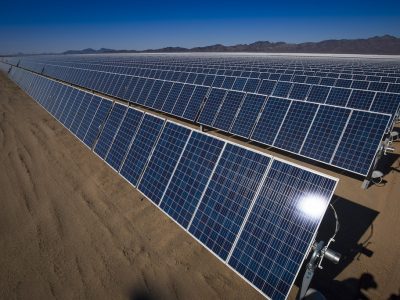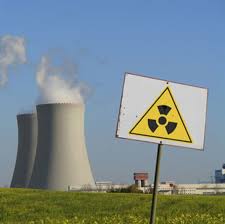A Trumped-Up Bailout Plan
Legally deficient? Arbitrary? Disguised special interest favors? All par for the course in this Administration.
You couldn’t ask for a more typical example of the Trump Administration at work. Nuclear and coal plants are being closed across the country, unable to compete with cheap natural gas and increasingly cheap renewables. In a desperate effort to support the coal industry, Trump wants to force consumers to subsidize these plants. It’s not surprising that he’s jumped at this bailout plan, because it echoes so many of the Administration’s themes.
You might be surprised to learn that a national security argument is key for this plan. As explained in a leaked memo, the idea is that natural gas plants rely on pipelines that might fail, due to extreme weather or cyber-terrorism. (The weather part of this argument has already been thoroughly debunked, leaving only the terrorism threat). If the pipelines fail, so the argument goes, wind and solar can’t be counted on 24/7, but coal plants and nuclear plants have their fuel on site and can be operated round-the-clock. Yet all of the necessary specifics are lacking to make this argument credible: assessments of the likelihood of pipeline failures, availability of alternative precautions, or what specific plants are actually needed as backups and for how long. Nor does the memo consider how the proposal could undermine grid resiliency by squeezing out low-cost power suppliers and inhibiting investment in new power plants. Cybersecurity is a real problem for the grid, but this proposal doesn’t even attempt a targeted response. Rather, the memo’s argument is mostly just hand waving – like the Administration’s arguments for keeping EPA from considering reliable scientific evidence based on confidential information.
Of course, everyone knows that the real reasons for the plan have nothing to do with national security and everything to do with Trump’s allegiance to the coal-mining industry. And this isn’t the first time that Trump has relied on national security as a smokescreen – there’s the immigration ban, not to mention his invocation of national security to justify tariffs for steel and aluminum.
Like the tariffs, the bailout plan also reveals how little Trump cares about such traditional Republican ideas as cost-benefit analysis, free markets, and federalism. The elaborate memo discussing the basis for the plan fails to engage in anything remotely resembling cost-benefit analysis, with zero effort to evaluate the likelihood of breakdowns in gas supplies, the harmfulness of those breakdowns in specific markets, or the cost of the bailout plan on electricity users. And of course, the plan is a slap in the face at free-market competition in electricity markets. In most states, large generators are owned by local utilities and mostly supply local needs, but if this plan goes into effect, states will be deprived of control over the operation of these generators.
The legality of the plan is also highly dubious – not at all unusual for this Administration. The plan relies on two statutes. One relates to national security. Besides the flimsiness of the national security link, this statute seems aimed at forcing sellers to provide goods, not forcing buyers to purchase them. The other statute relates to grid emergencies, and it’s hard to see this as anything like an emergency.
It’s also doubtful that the plan could survive judicial review under the “arbitrary and capricious” standard, which requires a reasoned justification based on the evidence. Here, the evidence is thin and doesn’t seem to point toward a need for sweeping action to prevent the supposed risk.
Not that lack of evidence or detailed reasoning is a surprise. After all, Trump prides himself on his unpredictability, and his thought processes are best expressed in tweets. In new editions of legal dictionaries, right next to the entry for “Arbitrary and Capricious,” you might find a picture of who-know-who.
Reader Comments
6 Replies to “A Trumped-Up Bailout Plan”
Comments are closed.







Dear Dan,
Coal and nuclear power plants remain economically viable as large-scale sources of reliable base-load power generation which is absolutely necessary to backup measly, flimsy unreliable solar and wind projects. Why not continue to safely operate those coal and nuclear plants that have years of useful life in them?
Good clean burning natural gas is the best technology for new power plants. Existing coal and nuclear plants are major sources of electricity throughout America so they must necessarily continue to be maintained and operated for as long as reasonably possible. President Trump is right.
But why not let the market replace coal with natural gas? Natural gas is superior in every way: cost, cleanliness, and throttling ability. It seems rather anti-conservative to intervene in the market to prop up a losing industry.
BBQ Planet asked;
“…..why not let the market replace coal with natural gas?…….”
Dear BBQ,
It is my understanding that the price of coal remains competitive with natural gas, and most coal furnaces can readily switch to natural gas burners. New gas power plants may cost less than coal plants and are more efficient. We agree, let the market replace coal with natural gas – that is good sound energy policy going forward.
The price per Btu of coal vs gas is only part of it. Natural gas fuels turbines with bottoming steam cycles whereas coal only fuels steam. As a result gas makes more kW per Btu, “fire to wire”; new gas plants are exceeding 60% efficiency whereas coal is stuck below 40% because of the basic thermodynamics and engineering limits of steam only plants.
It is also more difficult to handle what is essentially rock than a gas and gas doesn’t leave ash, which also must be dealt with.
By the way, natural gas plants don’t generally burn NG in a boiler. Most are gas turbines with bottoming steam (the GT exhaust heats a boiler) and very small ones are reciprocating cylinder type engines. Both types are inherently more efficient than steam plants alone.
Dan, one historical fact of life that academic intellectuals are proving again today; is that you are failing to meet the challenges of change that cause civilizations to fail (per Will and Ariel Durant), democracies to fail and can destroy the human race.
In the latest Spring issue of CALIFORNIA alumni magazine, Chancellor Christ posted the following Letter: https://alumni.berkeley.edu/california-magazine/spring-2018-edibles-and-potables/chancellors-letter-planning-change
In her Letter she asks:
“What are the critical issues—the grand challenges—facing our state, our nation, and our world that Berkeley is uniquely suited to address and solve? Where are we best positioned to be a global leader, and what investments do we need to make to become so?”
Do any academic intellectuals have an immediately implementable answer to this most important question today, and if so, what is it because you keep proving that time may have already run out because of out of control global warming we are experiencing today?